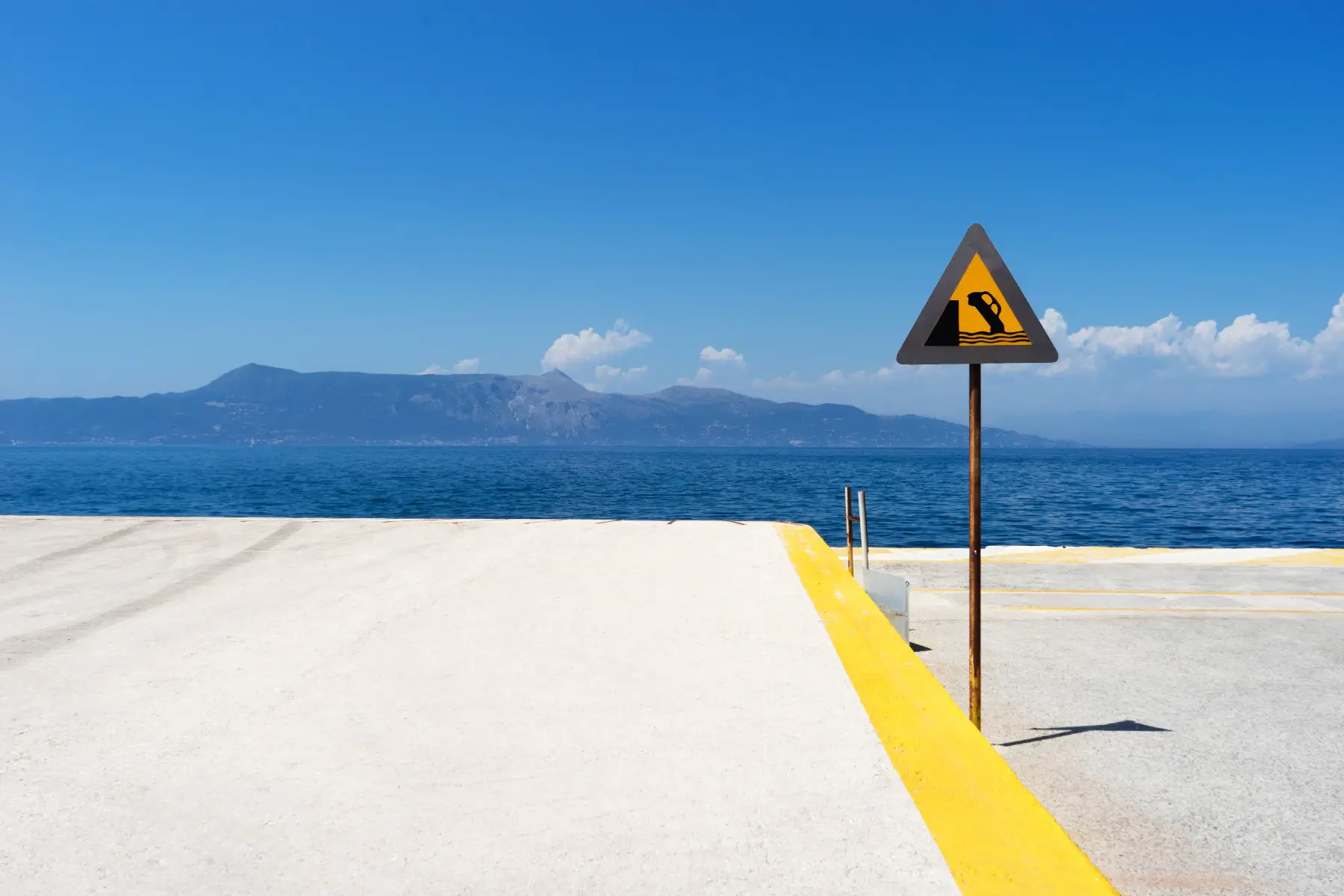Moving to a new country inevitably involves a lot of admin as you sort out the essentials, and relocating to Italy is no exception. When starting out in your new life, it’s crucial to make sure you have the necessary insurance. Each country has its own compulsory and voluntary types of insurance, so make sure you know what you need in Italy.
Whether it’s protecting your home, vehicle, or movable belongings, find out how insurance in Italy works and what kind of coverage you might need. Sections include:
Moving2Italy
When relocating to Italy, get expert help from Moving2Italy on taxes, work permits, and setting up a business. They also provide personalized support for immigration, social security, and residence, helping you navigate your new life abroad. For assistance with fiscal and immigration matters, contact Moving2Italy.
Overview of insurance in Italy
Italy has a strong insurance market that includes both national and international providers. The country has many different types of insurance available. Some are compulsory, but others are optional.

Italians spent around €2,200 per capita (PDF) on insurance in 2019. This is slightly higher than the EU average, with car insurance and life insurance among the most common types.
The Italian Insurance Supervisory Authority (Istituto per la Vigilanza sulle Assicurazioni – IVASS) regulates the Italian insurance industry. The National Association of Insurance Companies (Associazione Nazionale fra le Imprese Assicuratrici – ANIA) is the main representative body for insurance companies in Italy.
According to European Union (EU) data, there were 97 insurance companies (PDF) operating in Italy in 2017.
Which insurance in Italy is legally required?
Vehicle insurance
All vehicles on Italian roads must have at least third-party liability insurance to cover accidents and damage to other vehicles and persons. Drivers in Italy can also choose to purchase more extensive insurance coverage to protect against damage to their own vehicle caused by external events such as fire, storms, theft, or even accidents caused by themselves.
As car insurance in Italy is compulsory, it makes up a large percentage (around 50.6% – PDF) of non-life insurance premiums in the country.
There are many expat-friendly car insurance companies in Italy, including:
Health insurance
The Italian healthcare system isn’t insurance-based. However, anyone in Italy who isn’t registered with the National Health Service (Servizio Sanitario Nazionale – SSN) needs to take out private health insurance if they aren’t covered by a healthcare agreement between Italy and their own country.
This includes non-EU or European Free Trade Association (EFTA – Iceland, Liechtenstein, Norway, and Switzerland) nationals from most countries on a short-stay visa. Additionally, it applies to all expat residents who don’t have to register with the SSN and opt out of voluntary registration.

For all other residents, health insurance is optional as a supplement to public healthcare and to access treatments on the private market. Health insurance in Italy accounts for just over 7% of all non-life insurance premiums. This is much lower than in many other countries as it is only compulsory for a small percentage of the population.
Health insurance providers in Italy include:
- Cigna Global
- Allianz Care
- APRIL International
Liability insurance
Third-party liability insurance covers you if you cause injury or damage to other people or their belongings. It is only compulsory in specific circumstances. In addition to motor vehicle liability insurance, in 2022, the authorities brought in mandatory winter sports liability insurance for all skiers in Italy. Others can choose to purchase liability insurance if they want to protect against accidents and injuries to third parties.
Liability insurance represents around 9.1% of non-life insurance in Italy.
Unemployment insurance
Italy has a compulsory social security system where workers pay insurance that entitles them to benefits in situations such as becoming unemployed. There are three different types of benefits:
- New social insurance for employees (Nuova Assicurazione Sociale per l’impiego – NASpl) – unemployment benefit paid to workers who have lost their job involuntarily if they have made at least 13 weeks of contributions in the last four years
- Unemployment benefit for fixed-term contract workers (L’indennità di disoccupazione mensile – DIS-COLL) – for self-employed workers and those on atypical contracts who have lost their job involuntarily and have made at least one month of contributions in the last year
- Benefit for self-employed professionals (Indennità straordinaria di continuità reddituale e operativa – ISCRO) – for VAT-registered self-employed professionals who have made at least four years of payments to a pension scheme as a professional
Optional forms of insurance
Life insurance
Life insurance is the most common form of insurance in Italy, accounting for just over three-quarters of the market (76.2%). However, it is not compulsory. Many Italians have a life insurance policy through their employers. In that case, payment is made to the policyholder’s survivors in the event of their death.

Life insurance coverage is often a part of pension scheme coverage in Italy.
Property insurance
There are two main types of property insurance in Italy. The first, building insurance (sometimes called ‘homeowner’s insurance’), covers your house or apartment. The second, contents insurance, is for movable property. Neither is mandatory, although many mortgage providers insist that you have building insurance before they lend you money.
Property insurance makes up around 16% of the non-life insurance market in Italy.
Accident insurance
Also called ‘injury insurance’ or ‘casualty insurance’, accident insurance is another common form of voluntary insurance in Italy. It covers expenses for non-work related accidents, for example, medical costs or loss of income not covered by other policies.
Accident insurance accounts for just over 9% of the non-life insurance market in Italy.
Travel insurance
If you vacation in Italy, you might want a travel insurance policy to cover expenses related to trip cancelation, flight delays, lost luggage, and other unforeseen circumstances. There are varying levels of policy available depending on what you want to cover.
Most policies cover the costs of medical emergencies. However, you must have an extended health insurance policy to cover any general health costs not related to an emergency.
Commercial insurance
Most insurance companies deal with insurance for businesses as well as individuals.

Types of insurance vary between different companies. However, some of the common forms of commercial insurance in Italy include:
- Business vehicle insurance – as with all vehicles on the road in Italy, company cars and other vehicles need at least third-party insurance. Other company-specific motor insurance is available, such as insuring a fleet of vehicles or protecting against damage caused by customers.
- Personnel insurance – this is legally required by businesses that employ staff, and essentially covers them in the event of work-related sickness, accident, or illness. Some insurers provide packages available to employers that also cover unemployment insurance for workers, where both employer and employee make contributions.
- Liability insurance – compulsory for most Italian businesses, this insurance covers risks associated with injury or illness to third parties, damage to property, financial loss, or other losses brought about by negligence.
- Property insurance – similar to personal property insurance, this isn’t normally mandatory, but most businesses take out a policy to cover their premises and equipment against damage, loss, or theft.
- Cyber insurance – this modern form of business insurance, which is optional in Italy, protects businesses dealing with electronic information against data loss, cyber-attacks, and business interruptions caused by IT failure.
If you run a business or are a freelance professional, it’s worth looking into what forms of insurance you can get to protect against risk. You should always make sure you have the minimum legally required level of coverage.
How to choose an Italian insurance company
When looking for an insurance provider, there are a number of factors you may want to consider beyond which broker offers the cheapest plan.

Other things to think about include:
- What is included and excluded? – check carefully for exclusions, as this can sometimes cause problems when it comes to claiming. If you’re concerned about this, it may be worth considering a comprehensive plan.
- What is the deductible? – this is the amount that you have to pay out towards a claim before you can activate your insurance policy. Some companies may offer the chance to increase your deductible for a lower monthly premium, but beware, as this will cost you if you end up making a claim.
- Ease of process – how easy is it to take out a policy and make a claim? Many companies now offer online services to speed things up. It might be worth checking how long you will have to wait for compensation in the event of a successful claim.
- Company feedback – how does the company fare on rating websites, and what are customers saying about them? Look at scores and read a few reviews to get an idea of what to expect.
- English-speaking services – this may be a factor if you don’t speak Italian very well. Fortunately, there are a number of international insurers in Italy where you are more likely to find English-language or other-language services.
- Company ethics – how does the company fare on ethics and sustainability ratings on sites such as CSRHub, Standard Ethics, and Corporate Knights?
Always make sure that your insurance provider is signed up to the IVASS register. This ensures that they are properly regulated.
Tools for comparing insurance
There are a number of comparison websites in Italy where you can compare quotes for different forms of insurance. Some of the main ones include (all in Italian):
How to complain about an Italian insurance company
If you wish to complain about an insurance provider, the first thing you should do is contact the complaints team within the insurance company itself. The company has 45 days to reply to you. If you don’t get a reply or if you aren’t satisfied with the response, you can take the complaint to IVASS. This is the national body that regulates insurance in Italy.
IVASS normally assesses complaints within 90 days of receipt and has the power to sanction companies if they are in breach of guidelines. However, if no breach is found, your final option is to pursue the matter through the Italian courts. This can be costly, as you will have to take care of all legal expenses.
IVASS is currently setting up an insurance ombudsman (Arbitro Assicurativo) as an alternative form of out-of-court insurance dispute resolution. The ombudsman scheme is due to launch in 2023 (link in Italian).
Useful resources
- Italian Insurance Supervisory Authority (Istituto per la Vigilanza sulle Assicurazioni – IVASS) – supervisory and regulatory body for the Italian insurance industry






